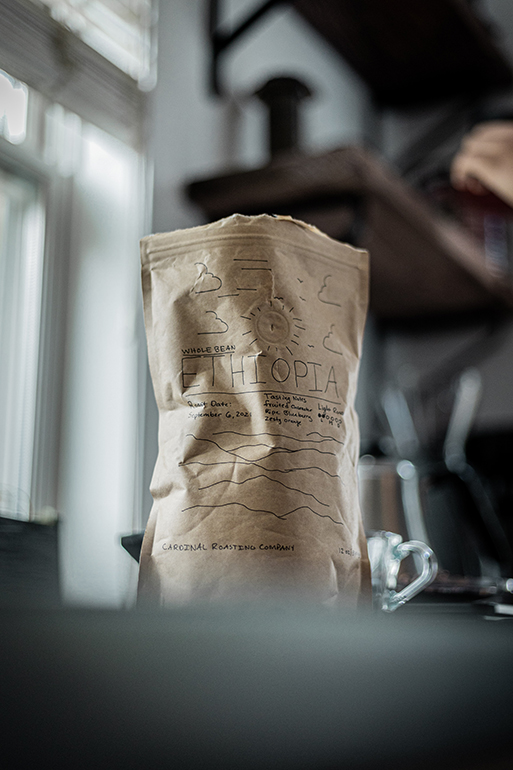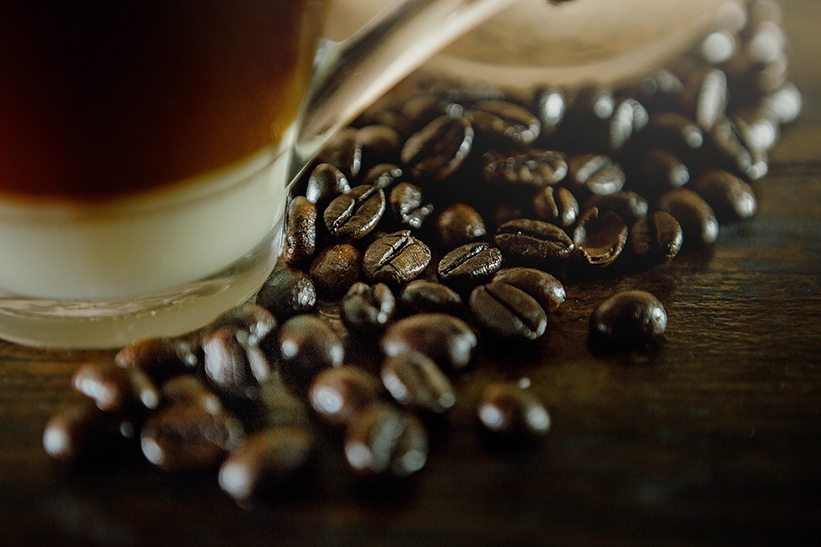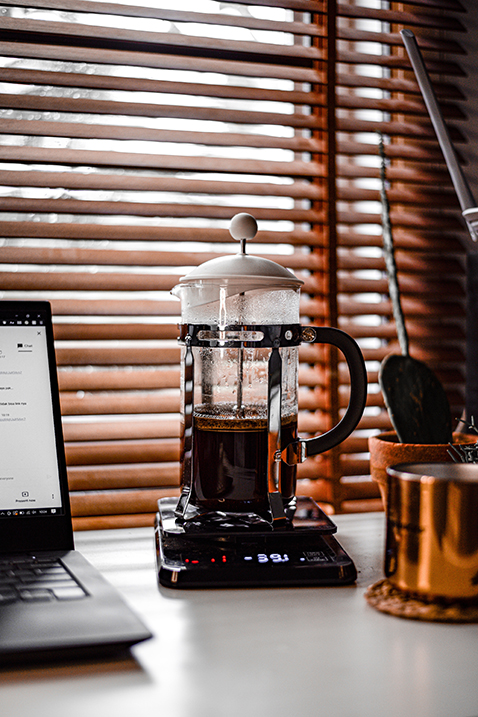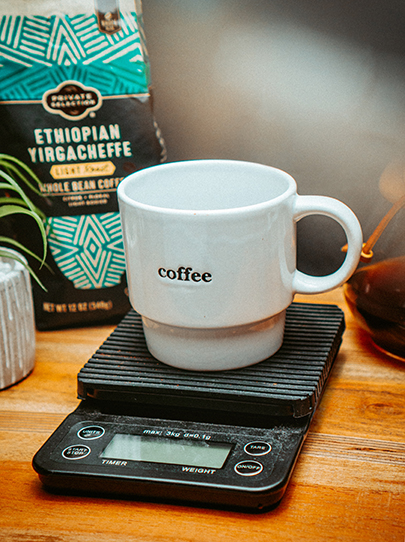Single Origin Coffees are a unique category of coffee that originates from a specific geographic location. These coffees are known for their distinct flavor profiles, which are influenced by the specific growing conditions of their origin. It makes each cup of single origin coffee a unique experience, offering a taste of its specific place of origin.
In this informative article we will give you a useful introduction to single origin coffees.
| Key Takeaways | |
|---|---|
| 1 | Single origin coffees offer unique and distinct flavor profiles that reflect the specific growing conditions of their origin. This allows coffee lovers to experience a wide range of flavors and aromas. |
| 2 | The brewing technique plays a crucial role in the taste of single origin coffee. Techniques like pour-over, AeroPress, and French press can highlight the unique flavors and aromas of single origin coffees. |
| 3 | Single origin coffee promotes transparency and traceability, allowing consumers to trace the coffee back to its specific farm or region. This supports sustainable farming practices and recognizes the hard work of individual farmers and cooperatives. |
The Importance of Bean Provenance in Single Origin Coffees
The provenance of coffee beans plays a crucial role in the taste and quality of single origin coffees. The term “provenance” refers to the specific geographic location where the coffee beans are grown. It includes the country, region, and even the specific farm. The climate, soil, altitude, and farming practices of each location contribute to the unique flavor profiles of the beans.

For example, coffee beans grown in the volcanic soils of Guatemala may have a different flavor profile than those grown in Ethiopia’s high altitudes. Understanding the provenance of coffee beans allows us to appreciate the diversity and complexity of single origin coffees.
How Single Origin Differs from Blends
Single origin coffees and blends are two different categories of coffee with distinct characteristics. While single origin coffees come from a specific geographic location, blends are a mix of coffee beans from different origins.
The goal of creating a blend is to balance the flavors and create a consistent taste profile. On the other hand, single origin coffees aim to highlight the unique flavors of a specific region. It means that single origin coffees can offer a broader range of flavors compared to blends. However, choosing between single origin and blends ultimately depends on personal preference.
The Best Single Origin Coffees
There are many exceptional single origin coffees worldwide, each offering a unique taste experience. Some of the best single origin coffees include:
- Colombian Coffee: Known for its balanced flavor and medium acidity.
- Ethiopian Coffee: Famous for its fruity and wine-like flavors.
- Guatemalan Coffee: Recognized for its full body and rich chocolatey flavors.
- Kenyan Coffee: Loved for its bright acidity and complex flavor profiles.
Each of these coffees offers a unique taste experience, reflecting the particular growing conditions of their origin.
Single Origin Coffee Subscriptions
For coffee enthusiasts who want to explore the diverse world of single origin coffees, a single origin coffee subscription can be an excellent choice. These subscriptions deliver fresh single origin coffees right to your doorstep regularly.
It allows you to explore different coffee origins without leaving your home. Some subscriptions even offer tasting notes and information about the provenance of the beans, enhancing your coffee-tasting experience.
Single origin coffees offer a unique opportunity to taste the diverse flavors of coffee from around the world. Whether you prefer the balanced flavors of Colombian coffee or the fruity notes of Ethiopian coffee, there’s a single origin coffee that’s perfect for you. And with a single origin coffee subscription, you can embark on a global coffee-tasting journey from the comfort of your home.
Brewing Techniques for Single Origin Coffees
In this section we will now touch upon different brewing techniques available for single origin coffees.
The Art of Preparing Single-Origin Coffee at Home
Brewing single-origin coffee at home is an art that requires understanding and appreciation of the unique characteristics of the coffee.
The process is as follows:
- Selecting high-quality single-origin beans and proper grinding to ensure the right size for your brewing method.
- The water temperature and brew time also play crucial roles in extracting the optimal flavors from the beans.
- It is essential to adjust your brewing parameters based on the specific characteristics of the coffee as some single-origin coffees may require a slightly lower water temperature or a longer brew time to express their flavors fully.
The Importance of Fresh, Roast-to-Order Beans
The freshness of coffee beans significantly impacts the taste of your coffee. Roast-to-order beans are roasted in small batches and shipped immediately after roasting to ensure maximum freshness. It is essential for single-origin coffees, as fresh beans can better showcase the unique flavors of their origin.
When brewing single-origin coffee at home, using beans within two weeks of roasting is recommended. It ensures that the beans are at their peak flavor, allowing you to appreciate the unique characteristics of single origin coffee fully.

Slow Brewing Techniques for Single Origin Coffees
Slow brewing techniques are often recommended for single-origin coffees. These methods, which include pour-over, French press, and cold brew, allow for a slower extraction process. This slow extraction can highlight the complex flavors and aromas of single-origin coffees.
Slow brewing techniques also give you more control over the brewing process, allowing you to adjust the water temperature, brew time, and coffee-to-water ratio to suit the specific characteristics of the coffee.
Pour Over Method for Single Origin Coffees
The pour-over method is a popular brewing technique for single-origin coffees. This coffee brewing method involves pouring hot water over ground coffee in a filter, allowing the water to slowly pass through the coffee grounds and into a carafe or cup.

The pour-over method gives you control over the water temperature and brew time, which can be adjusted based on the specific characteristics of the single-origin coffee.
This method produces a clean and vibrant cup of coffee, making it ideal for highlighting the unique flavors of single-origin coffees.
Other Brewing Techniques: AeroPress and French Press
In addition to the pour-over method, the AeroPress and French press are excellent brewing techniques for single-origin coffees.
- The AeroPress is a manual coffee maker which uses pressure to extract the coffee, resulting in a smooth and full-bodied cup.
- The French press, however, is a steeping method that produces a rich and robust cup of coffee.
Both methods allow control over the brewing parameters, making them suitable for single-origin coffees. However, each method produces a distinct taste profile, so the choice between AeroPress and French press will depend on your taste preference.
Brewing single-origin coffee at home is an art that requires understanding and appreciation of the unique characteristics of the coffee. Whether you prefer the pour-over method, AeroPress, or French press, each brewing technique uniquely showcases the diverse flavors of single-origin coffees.
Further Discussion
In this introductory article to single origin coffees there are some other useful points for further discussion which we will look at now.
Why Single Origin Coffee is Better
Single origin coffee is often considered superior to blends due to its unique and distinct flavor profiles. Unlike blends, which aim to achieve a consistent flavor by mixing beans from different origins, single origin coffee celebrates the unique characteristics of its specific growing region.
It allows coffee lovers to experience a wide range of flavors and aromas that reflect the specific soil, climate, and farming practices of the coffee’s origin. Moreover, single origin coffee promotes transparency and traceability, as consumers can trace the coffee back to its specific farm or region.
It enhances the coffee tasting experience and supports sustainable farming practices by recognizing the hard work of individual farmers and cooperatives.

Showcasing Unique Flavors and Aromas of Single Origin Coffees
One of the main appeals of single origin coffees is their ability to showcase unique flavors and aromas. Each growing region imparts distinct characteristics to the coffee, resulting in various flavor profiles.
For instance, Ethiopian coffees are known for their fruity and wine-like flavors, while Colombian coffees are recognized for their balanced flavor and medium acidity.
These unique flavors and aromas provide a sensory journey, allowing coffee lovers to taste the world from their coffee cup. It’s like a passport to different cultures and climates, all through coffee.
Factors Influencing the Taste of Single Origin Coffees
The taste of single origin coffees is influenced by various factors, including the coffee’s origin, the roast level, and the brewing method.
- Origin: The specific growing conditions of the coffee’s origin, including the soil, climate, and altitude, significantly impact the flavor of the coffee. For instance, coffees grown at high altitudes often have a bright acidity and complex flavors due to the slower growth of the coffee cherries.
- Roast Level: The roast level can enhance or mute certain flavors in the coffee. Light roasts often highlight the unique flavors of the coffee’s origin, while dark roasts can bring out flavors like chocolate and caramel.
- Brewing Method: The brewing method also plays a crucial role in the taste of the coffee. Different brewing methods can highlight various aspects of the coffee. For instance, the pour-over method produces a clean and vibrant cup of coffee, while the French press can produce a rich and robust cup.
Conclusion
In essence, single origin coffees offer a unique opportunity to taste the diverse flavors of coffee from around the world and with the proper brewing techniques, you can fully sample these coffees’ unique flavors and aromas. So, embark on a global coffee tasting journey and discover the world of single origin coffees.
FAQs
Can you make espresso with single origin coffee?
Yes, you can make espresso with single origin coffee. Single origin espressos can offer a unique tasting experience, showcasing the distinct flavors of the coffee’s origin.
Why are blends cheaper than single origin?
Blends are often cheaper than single origin because they mix beans from different origins, which can include lower-cost beans. On the other hand, single origin coffees come from a specific geographic location, and the beans are often sourced from smaller farms that practice sustainable farming methods. It can make single origin coffees more expensive but also more unique and traceable.
What is the rarest single origin coffee?
One of the rarest single origin coffees is the Kopi Luwak from Indonesia. This coffee is unique because the coffee cherries are eaten and excreted by a civet cat before being collected, cleaned, and roasted. However, due to ethical concerns about the treatment of civet cats, this coffee is controversial.
Is single origin coffee healthier?
The health benefits of coffee are primarily determined by how it’s consumed rather than whether it’s a single origin or blend. Both types of coffee contain antioxidants and can provide health benefits when consumed in moderation. However, adding sugar, cream, or other additives can offset these benefits.
Is single origin coffee more ethical?
Single origin coffee can be more ethical as it promotes transparency and traceability. Consumers can trace the coffee back to its specific farm or region, supporting smaller farms and cooperatives. However, it’s essential to look for certifications like Fair Trade and Organic, which ensure that the coffee you purchase is produced in a way that is both environmentally sustainable and socially responsible

Taylor – Barista and Product Tester at MyCoffeeBeanz.com
Taylor is a professional barista and our product tester here at MyCoffeeBeanz.com. She loves experimenting with different coffee brewing methods but her real passion within the coffee industry is helping promote sustainability and eco-friendliness wherever she can. Read more about Taylor here
